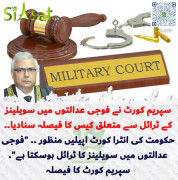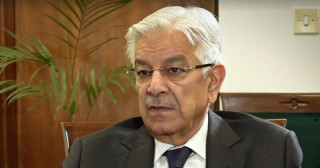84471k
MPA (400+ posts)
KASHMIR -- CREDENTIALS FOR INDEPENDENCE
Among about a dozen solutions to Kashmir Issue suggested by different quarters since creation of the problem in 1947, complete independence of the entire Jammu Kashmir State (commonly termed as Kashmir only) has enjoyed the covert support of the biggest number of Kashmiri people but since the solution has been unacceptable to India and Pakistan and to vested interests in both Indian and Pakistani controlled parts of Kashmir, open popular support to it has remained almost invisible. India and Pakistan, in spite of having supported independence to Kashmir at early stages of the issue, oppose it now, as they dont want to part with their occupied parts of the State. They have created their pets and puppets in Kashmir who rule their respective areas turn by turn according to the whims of their masters. These pet politicians and puppet governments also oppose independence to entire Kashmir firstly because their respective masters in New Delhi and Islamabad want them to do so and secondly because re-unification and independence of the whole State will deprive them of the authority and the luxuries they have been and are enjoying.
Apart from the covert popular support that the idea of independence of the whole State enjoys and apart from the fact that independence is the only way Kashmir can be changed from a poisonous bone of contention to a bridge of friendship between India and Pakistan thereby assuring a peaceful and prosperous future for entire South Asia, Kashmir has very strong credentials of its own too to become a fully independent State! Let me enumerate and elaborate them.
1: History:
Thousands of years long history of Kashmir is divided into eras of local and foreign rules. Its borders have also been expanding and shrinking occasionally. Before Muslims appeared on its political arena in the 14th century A.D, 21 dynasties of Hindus, Buddhists, Janis and Zoroastrians had ruled Kashmir out of whom 18 were local during whose rule Kashmir was an independent State. Muslims ruled it for 480 years (1339 to 1819 AD) out of which 246 years (more then half) were of complete independence which also include its golden era of Budshah Rule (142o to 1470) when Kashmir reached the zenith of its glory and prosperity. On the whole Kashmir has been a free and independent country for bulk of its history
2: Commitments:
Both India and Pakistan who occupy parts of Kashmir territory stand committed to independence of Kashmir. There are dozens of examples each to that effect. Let me refer to only one each.
India:
Addressing the UN Security Council on January 15, 1948, Gopala Swami Ayangar, the head of Indian delegation declared on behalf of India, .. whether she (Kashmir) should withdraw from her accession to India and either accede to Pakistan or remain independent with a right to claim admission as a member of the United Nations- all this we have recognized to be a matter for unfettered decision by the people of Kashmir, after normal life is restored to them. There could not be a stronger commitment from India to concede independence to Kashmir than one she made from the rostrum of the highest international forum.
Pakistan:
The founder of Pakistan Quaid-e-Azam Muhammad Ali Jinnah had declared through his policy statements made on June 16, July 11, and July 30, 1947 that all princely states of the Subcontinent including Kashmir could opt for independence besides acceding to India or Pakistan.
3: Population and Area:
The population of Kashmir is about 16 million, more than the individual populations of as many as 133 of 191 UN member nations. Its Area is over 2,17, 000 sq. Km, more than the areas of about 102 independent nations
4: Economic Prospects:
The economic potentials of Kashmir i.e. Power Generation, Tourism, Forests, Cottage industries, Fruits, Minerals, Sericulture, and heavy skilled and unskilled manpower working abroad etc, are such that within a decade or so after independence and with proper planning, Kashmir can surely become the most prosperous country of the entire region
5: Defence of Kashmir:
Kashmir is surrounded by mighty neighbors i.e. China, India and Pakistan with none of whom can Kashmir afford a conflict. As such, there are two alternative ways to ensure its security. the first and the preferable one is to enter into a treaty of peaceful co-existence with all its neighbors. If that does not work, we will enter into defence pacts with any of them. As such defence will not be a big problem for independent Kashmir
6: Education:
Even today the aggregate literacy rate of Kashmir is higher than those of India and Pakistan. Tens of thousands of our engineers, doctors, scientists, and scholars can contribute to rapid development of our independent motherland
7: Freedom Struggle:
According to opinion polls conducted by Indian newspapers, a big majority of people in Kashmir Valley and large number of people in Jammu and Ladakh areas are for re-unification and independence. During the freedom struggle started in 1988 by pro-independence JKLF, tens of thousands of freedom fighters have sacrificed their lives out of which a big number were pro independence. A number of pro independent organizations, JKLF being the most prominent and active among them, are working in all the three parts of the state
8: Infrastructure:
At present Kashmir is divided into three administrative zones i.e. Indian controlled part and Pakistani controlled Azad Kashmir and Gilgit Baltistan. The Chinese administrated Aksai Chin is almost uninhabited. All the three have legislative assemblies, high courts, well-organized educational institutions, hospitals and quite efficient bureaucracy. So, independent Kashmir will not have to start every thing anew. All that will have to be done will be to restructure the existing institutions into the structure of a federal republic
All the aforementioned facts fully entitle Kashmir to complete independence even per norms of the UN and international law, and this entitlement is besides the fact that independence to Kashmir, having friendly relations with all its neighbours especially India and Pakistan, is the only way to bring durable peace to the area and also ensure a prosperous future for its huge populace numbering over one fifth of the entire humanity
In the light of these undeniable facts, India and Pakistan owe it to their future generations and the international community to world peace and to the principles and values that it stands for, to take steps conducive to conceding independence to Kashmir thereby ensuring peace, progress and harmony for entire South Asia.
Among about a dozen solutions to Kashmir Issue suggested by different quarters since creation of the problem in 1947, complete independence of the entire Jammu Kashmir State (commonly termed as Kashmir only) has enjoyed the covert support of the biggest number of Kashmiri people but since the solution has been unacceptable to India and Pakistan and to vested interests in both Indian and Pakistani controlled parts of Kashmir, open popular support to it has remained almost invisible. India and Pakistan, in spite of having supported independence to Kashmir at early stages of the issue, oppose it now, as they dont want to part with their occupied parts of the State. They have created their pets and puppets in Kashmir who rule their respective areas turn by turn according to the whims of their masters. These pet politicians and puppet governments also oppose independence to entire Kashmir firstly because their respective masters in New Delhi and Islamabad want them to do so and secondly because re-unification and independence of the whole State will deprive them of the authority and the luxuries they have been and are enjoying.
Apart from the covert popular support that the idea of independence of the whole State enjoys and apart from the fact that independence is the only way Kashmir can be changed from a poisonous bone of contention to a bridge of friendship between India and Pakistan thereby assuring a peaceful and prosperous future for entire South Asia, Kashmir has very strong credentials of its own too to become a fully independent State! Let me enumerate and elaborate them.
1: History:
Thousands of years long history of Kashmir is divided into eras of local and foreign rules. Its borders have also been expanding and shrinking occasionally. Before Muslims appeared on its political arena in the 14th century A.D, 21 dynasties of Hindus, Buddhists, Janis and Zoroastrians had ruled Kashmir out of whom 18 were local during whose rule Kashmir was an independent State. Muslims ruled it for 480 years (1339 to 1819 AD) out of which 246 years (more then half) were of complete independence which also include its golden era of Budshah Rule (142o to 1470) when Kashmir reached the zenith of its glory and prosperity. On the whole Kashmir has been a free and independent country for bulk of its history
2: Commitments:
Both India and Pakistan who occupy parts of Kashmir territory stand committed to independence of Kashmir. There are dozens of examples each to that effect. Let me refer to only one each.
India:
Addressing the UN Security Council on January 15, 1948, Gopala Swami Ayangar, the head of Indian delegation declared on behalf of India, .. whether she (Kashmir) should withdraw from her accession to India and either accede to Pakistan or remain independent with a right to claim admission as a member of the United Nations- all this we have recognized to be a matter for unfettered decision by the people of Kashmir, after normal life is restored to them. There could not be a stronger commitment from India to concede independence to Kashmir than one she made from the rostrum of the highest international forum.
Pakistan:
The founder of Pakistan Quaid-e-Azam Muhammad Ali Jinnah had declared through his policy statements made on June 16, July 11, and July 30, 1947 that all princely states of the Subcontinent including Kashmir could opt for independence besides acceding to India or Pakistan.
3: Population and Area:
The population of Kashmir is about 16 million, more than the individual populations of as many as 133 of 191 UN member nations. Its Area is over 2,17, 000 sq. Km, more than the areas of about 102 independent nations
4: Economic Prospects:
The economic potentials of Kashmir i.e. Power Generation, Tourism, Forests, Cottage industries, Fruits, Minerals, Sericulture, and heavy skilled and unskilled manpower working abroad etc, are such that within a decade or so after independence and with proper planning, Kashmir can surely become the most prosperous country of the entire region
5: Defence of Kashmir:
Kashmir is surrounded by mighty neighbors i.e. China, India and Pakistan with none of whom can Kashmir afford a conflict. As such, there are two alternative ways to ensure its security. the first and the preferable one is to enter into a treaty of peaceful co-existence with all its neighbors. If that does not work, we will enter into defence pacts with any of them. As such defence will not be a big problem for independent Kashmir
6: Education:
Even today the aggregate literacy rate of Kashmir is higher than those of India and Pakistan. Tens of thousands of our engineers, doctors, scientists, and scholars can contribute to rapid development of our independent motherland
7: Freedom Struggle:
According to opinion polls conducted by Indian newspapers, a big majority of people in Kashmir Valley and large number of people in Jammu and Ladakh areas are for re-unification and independence. During the freedom struggle started in 1988 by pro-independence JKLF, tens of thousands of freedom fighters have sacrificed their lives out of which a big number were pro independence. A number of pro independent organizations, JKLF being the most prominent and active among them, are working in all the three parts of the state
8: Infrastructure:
At present Kashmir is divided into three administrative zones i.e. Indian controlled part and Pakistani controlled Azad Kashmir and Gilgit Baltistan. The Chinese administrated Aksai Chin is almost uninhabited. All the three have legislative assemblies, high courts, well-organized educational institutions, hospitals and quite efficient bureaucracy. So, independent Kashmir will not have to start every thing anew. All that will have to be done will be to restructure the existing institutions into the structure of a federal republic
All the aforementioned facts fully entitle Kashmir to complete independence even per norms of the UN and international law, and this entitlement is besides the fact that independence to Kashmir, having friendly relations with all its neighbours especially India and Pakistan, is the only way to bring durable peace to the area and also ensure a prosperous future for its huge populace numbering over one fifth of the entire humanity
In the light of these undeniable facts, India and Pakistan owe it to their future generations and the international community to world peace and to the principles and values that it stands for, to take steps conducive to conceding independence to Kashmir thereby ensuring peace, progress and harmony for entire South Asia.




































